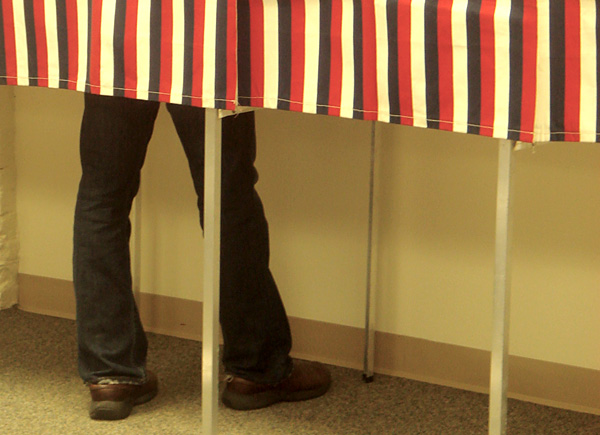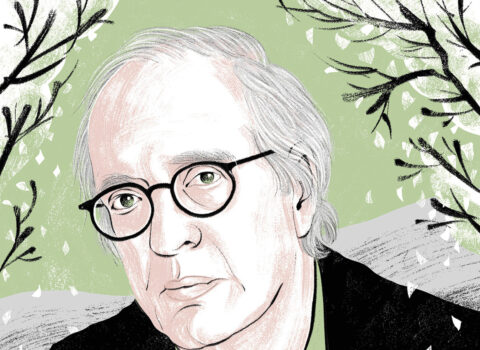
Yesterday afternoon, behind the stripes and holding my polling place’s already blunted pencil, I voted in the presidential election. I wrote, in a steady hand, a blue streak of ×’s, marching from south to north up my ballot to leave for last the final and most fundamental box.
I ×’d.
That afternoon, I turned off my phone, wrote until dinner and, with my girlfriend, prepared a meal. We kept the radio off, the phones off, shut down computers, didn’t turn the television on.
We lit a fire.
We ate.
We talked.
We drank champagne.
We made some wishes, taking Noah Webster at his etymological word.
This morning, we got into the car at dawn. It’s a short drive to our general store. On our way in, we passed two men in conversation and tried not to listen to them.
Made for the newspaper rack. Took in a half-dozen front pages.
And began some vigorous morning dancing.
Language has a way of swelling in equal proportion to a mind’s anger or a heart’s joy. Very easily, one can overstate what a moment means. Still, I believe the following is apparent as a result of last night:
Fundamentally, America is not a racist country.
Fundamentally, Americans are a thinking people.
Naturally, I don’t mean “fundamentally” in its literal sense (from fundare, “to found”). America was founded on racist policies and practices. Racism is a reflex; it voids thought. “We hold these truths to be self-evident,” our Declaration of Independence says, “that all men are created equal.” Who could think all men are created equal and not grant all men equal treatment?
So I mean “fundamentally” figuratively. I mean that a country with an unthinking racist past has manifestly evolved beyond its beginnings. Such growth has been a product of time but also, necessarily, a product of thought. 63,354,607 voted for a man who, fifty-two years ago, couldn’t win a seat on an Alabama bus. To my mind, of all the things that can be said or oversaid, such a radical, moral change in American life says something genuinely and literally uplifting about our often compromised, often disappointing contemporary culture. It says that a majority of us can think our way clear to a conclusion that can surprise, inspire, and stun.





